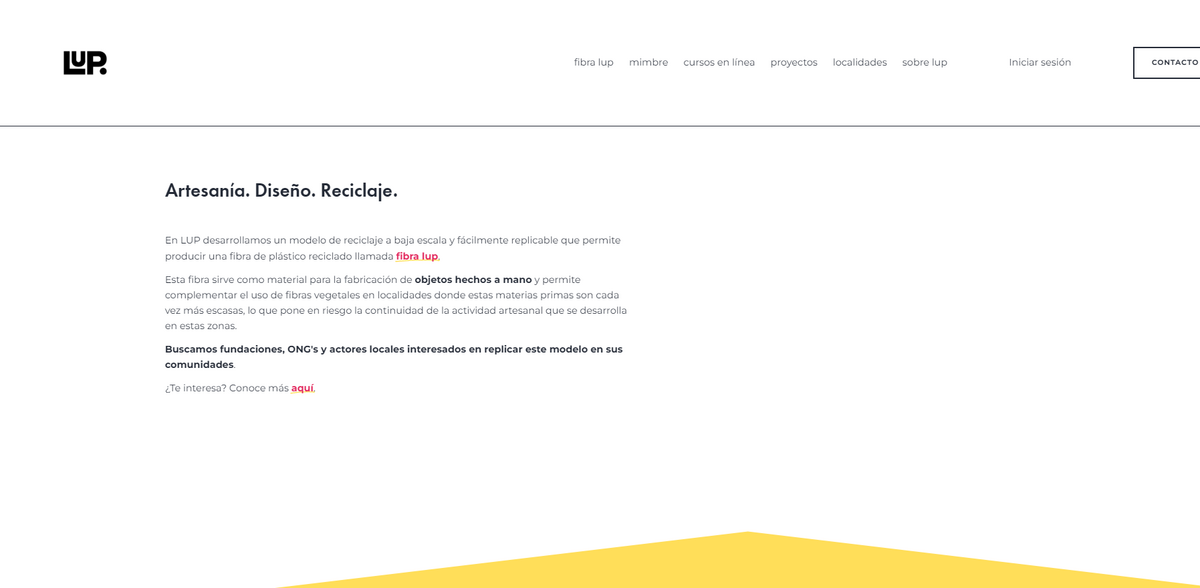What the Project Is About
LUP Fiber is made from recycled plastic—a flexible material that empowers anyone to create handmade objects and extend the lifespan of useless plastic. The project thrives on a powerful message: the power of change is in your hands ✊. With an approach that blends recyclable ingenuity and artisanal tradition, LUP Fiber is a sustainable solution rooted in creativity, recycling, and design. Specifically, the focus is on basketry as a craft that honors both the environment and community learning. For centuries, hands-on creative labor has been a means to connect, share techniques, and build stronger communities, and LUP Fiber channels that spirit into sustainable, handmade products.
Main Benefits and Key Facts
Key figures and important aspects include:
- Uses recycled plastic (LDPE from t-shirt bags, garbage bags, packaging films, sandwich bags, and more).
- Flexible material; available in two diameters—thin (approx. 1.0mm) and thick (approx. 2.0mm).
- Manufactured on a small scale with batch variations, enhancing each fiber’s unique character.
- Sales available as rolls of 10 meters starting from US$1,200.00.
- Committed to educational experiences through a basketry course that introduces recycling, creativity, and artisanal heritage.
The Basketry Course: Recycling Meets Craft
Every Thursday from 7:00 PM to 9:30 PM at Espacio Fraile in Ñuñoa, those interested in recycling and artisanal design come together to explore basketry using LUP Fiber. It is a creative and sustainable journey where learning by doing is the core philosophy. The playful twists of basketry invite participants to experiment with colors cataloged according to the Pantone system—the images serve as a visual guide with the understanding that tones may vary slightly. The course offers an engaging mix of recycling, design, and hands-on experience that is both practical and entertaining… it’s where tradition meets modern recycling.
Design, Recycling, and Handmade Culture
The narrative of this project naturally extends into a celebration of design and sustainability. Artisans have long incorporated recycled materials to create unique, handcrafted designs, and LUP Fiber embraces this cultural heritage. With its round fiber manufactured from recycled plastic n°4, this idea is taken further by transforming everyday waste into functional art. The process reminds one that the plastic that has accompanied human activity for hundreds of years can be repurposed with originality and care. Each roll of fiber becomes a testament to creativity—a nod to a long history of handmade crafts combined with contemporary environmental mindfulness.
A Contemporary Take on Ancient Skills
Basketry is more than a craft; it is an evolving tradition passed down through generations. This project revitalizes those ancient techniques with a modern twist by integrating recycled plastic into the creation process. The narrative unfolds in a casual yet passionate voice, inviting everyone to ponder how unused materials can have a new life when blended with age-old skills. In this space, recycled plastic becomes a vehicle for creative expression, supporting both artisanal values and the urgent need for responsible resource management.
From Recycling to Zero Waste Commitment
LUP Fiber stands at the crossroads of recycling, handmade art, and sustainability. Every aspect of the project—from the small-scale manufacturing process acknowledging slight variations between batches to the careful consideration of color matches using Pantone references—reinforces the message of turning waste into a valuable resource. The product not only embodies durability and flexibility but also highlights the continued relevance of old-school craftsmanship in tackling contemporary environmental issues. The underlying dialogue is always gently clear: let recycled plastic lead us to a zero waste future.
The Project Impact: Advancing Sustainable Development Goals
- SDG 12: Responsible Consumption and Production – Encouraging smarter use of resources through recycling and creative repurposing.
- SDG 13: Climate Action – Reducing waste and minimizing the environmental footprint by extending the lifecycle of plastic.
- SDG 11: Sustainable Cities and Communities – Contributing to community building and preserving artisanal traditions in modern urban settings.
- SDG 9: Industry, Innovation, and Infrastructure – Fostering innovative small-scale manufacturing with a focus on sustainable products.
Community Engagement and a Vision for the Future
Inspired by a rich history of handmade traditions and recycled creativity, the project invites thoughtful exploration and collective learning. Casual conversations during the basketry classes and hands-on workshops create an atmosphere where traditional skills meet modern ecological needs. Local communities, artisans, and environmental enthusiasts join together to share ideas, techniques, and aspirations—the result is an engaging process that nurtures both innovation and heritage. The future vision sees a world where more of what is deemed waste is celebrated for its potential, sparking sustainable practices that recall a time when creativity and community were the cornerstones of everyday life. This dynamic process of reinvention remains a living dialogue between past traditions and a responsible, inventive future.


















